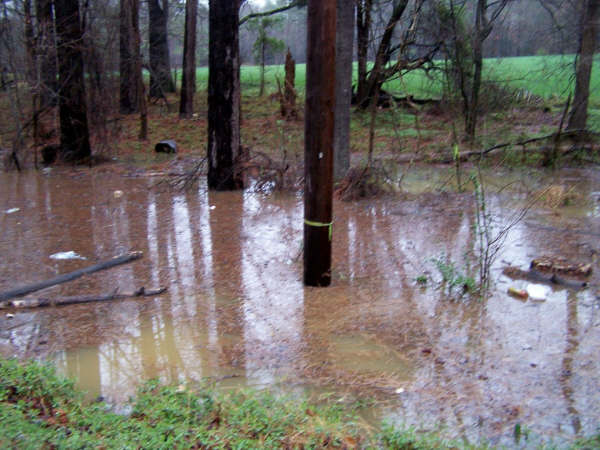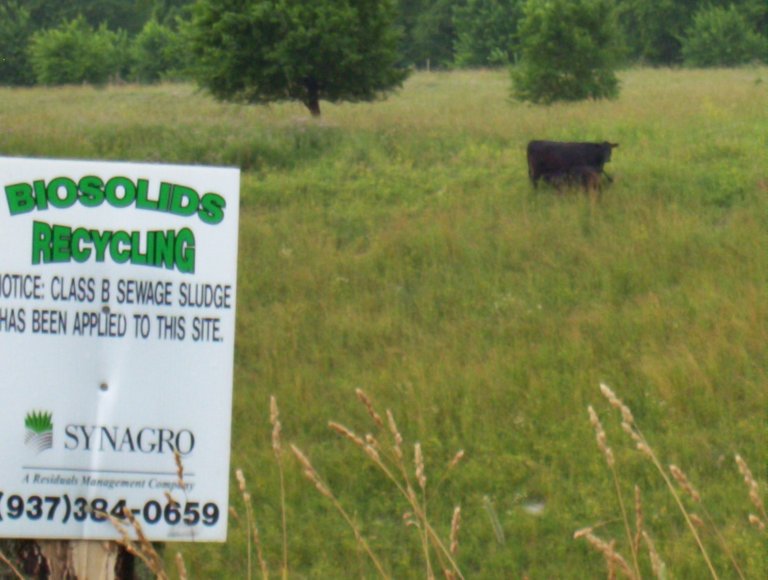By: Darree Sicher
PA Sierra Club Sustainable Agriculture Co-Chairs:
Darree Sicher & Sheila Gallagher
Taunja Beck is sick and tired of being sick and tired. Sometimes her bucolic Lancaster County is the community she grew up in--farmlands of rolling fields dotted with farmhouses and homes. But sometimes, when large patchworks of farmland are spread with endless truckloads of municipal sewage sludge waste from other cities and states, Taunja’s eyes swell closed, her face blisters and oozes. The suffocating smell is just an indicator that something is wrong. Taunja is the “canary in the coal mine” of a state and national problem: the transfer of toxic sewage sludge wastes marketed as a “soil amendment” contaminating our food, water, and environment.
Why does the PA Sierra Club care about Taunja Beck? Indicators of environmental contamination show danger signs long before elected officials or hired agencies validate what any engaged citizen recognizes - toxins in, toxins out. And PA Sierra Club is one of the first state Chapters nationally to adopt a anti-sludge policy echoing National Sierra Club in recognizing that sewage sludge wastes -- brimming with poisons, pharmaceuticals, heavy metals and hazardous chemicals -- affect landscapes, water, air and the humans and wildlife that depend on a sustainable and survivable environment.

Field flooded from sludge
Minimal testing requirements set by the EPA and state DEP for ten heavy metals and two bacteria ignore the thousands of hazardous chemicals floating in our waste stream. No testing requirements for pharmaceuticals and other modern chemicals that wash down the drains of industries and hospitals makes families living in sludged communities “canaries in the coal mine” with exposure to airborne and water quality concerns. Pennsylvania imports sewage wastes from all neighboring states and Canada. Farmland and soils can be irreversibly contaminated -- but what of the people and wildlife?
Alarming, but not surprising, hazardous contaminants -- including flame retardants PFAS (per- and polyfluoroalkyl substances) found in every sample of sludge nationally -- have started showing up in our food supply. Recently, the headlines of just how widespread the transfer of toxic wastes from sewage sludge into our food supply became evident in the case of Maine dairy farmer Fred Stone. Fred’s case highlighted that the “safe” sewage sludge he was using 20 years ago built up over time, contaminating his land, his livestock, his milk supply, and his family. Fred’s action as a whistleblower forced the FDA and EPA to investigate, and validate the dangers of the national policy of promoting the use of sewage sludge as a false fertilizer. The truth of this dangerous policy is terrifying to farmers and farm organizations, as well as the politicians representing Pennsylvania residents, who have supported this practice. No national regulations have changed in 30 years to protect our environmental and human health from chemicals like PFAS found in sewage wastes. Sierra Club’s anti-sludge policy supports farmers and growers with real science: safe and healthy soils are part of a safe and healthy environment.

The Sustainable Agriculture Committee of the PA Sierra Club boldly promotes a statewide anti-sludge policy as well as the Sierra Grassroots “Wastewater Residuals” team. The Sustainable Agriculture team has hosted informational booths at events like the Pennsylvania Sustainable Agriculture (PASA) conference as well as film screenings of, “What Lies Upstream,” and “The Devil We Know,” to highlight contamination transfer to our food, water, and communities.
Make a difference! Host a booth in your community (Earthday is just around the corner!), organize a film screening and discussion panel, and offer updated information to elected officials about sludge contamination. Look for our sludge-free policy and downloadable hand-outs on Sierra Club Pennsylvania Chapter’s website.
Why does the PA Sierra Club lead the nation with a sludge-free policy? To make a difference for our environment, our food, our families, and our future.
For more info contact Darree Sicher by email at zinc5@enter.net or 610-823-8258